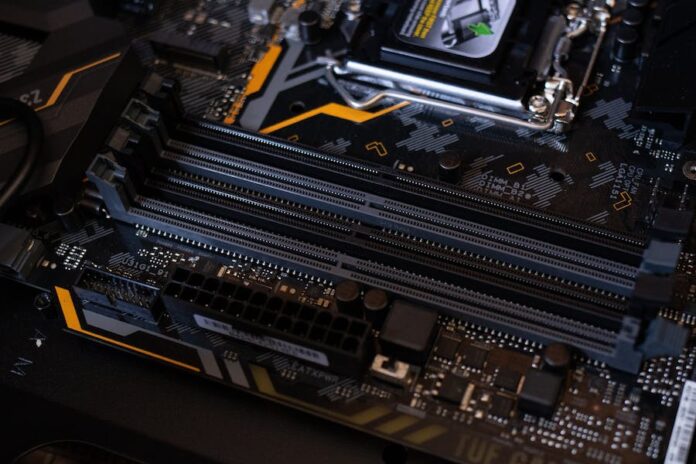Are you a gaming enthusiast looking to optimize your PC’s performance? One crucial aspect that often gets overlooked is the temperature of your CPU while gaming. Knowing the ideal temperature range for your processor during intense gaming sessions is essential for maintaining system health and ensuring peak performance. In this blog, we’ll dive into the world of CPU temperatures, exploring what numbers you should aim for, and why it’s so important to keep your CPU cool while tackling the latest games. Whether you’re a casual gamer or a hardcore enthusiast, understanding and managing your CPU’s temperature can make a significant difference in your gaming experience. Let’s get started on uncovering the optimal temperature range for your gaming CPU and how to maintain it.
What Temp Should My CPU Be While Gaming?
The ideal CPU temperature while gaming typically falls within the range of 60°C to 80°C for most CPUs. However, it’s essential to check your specific CPU model’s specifications for its recommended temperature range, as it can vary.
Rising And Falling CPU Temperatures
Before we jump into the ideal CPU temperatures for gaming, let’s first understand what CPU temperatures are and why they matter. The CPU, or Central Processing Unit, is the brain of your computer. It handles all the calculations and processes that make your games run smoothly.
Like any electronic device, your CPU generates heat as it works. To prevent overheating and potential damage, modern CPUs are equipped with temperature sensors and cooling systems. These sensors monitor the CPU’s temperature, and the cooling system, often a combination of fans and heatsinks, works to dissipate the heat and keep the temperature in check.
The Importance Of Proper CPU Temperature
Maintaining the right CPU temperature is crucial for several reasons:
1. Performance:
An overheating CPU can lead to decreased performance. When your CPU gets too hot, it may throttle its speed to prevent damage. This means your games won’t run as smoothly as they should, leading to lag and stuttering.
2. Longevity:
High temperatures can shorten the lifespan of your CPU. Over time, excessive heat can cause damage to the CPU’s internal components, reducing its overall lifespan. If you want your gaming rig to last, keeping the temperature in check is a must.
3. Stability:
A stable system is essential for an enjoyable gaming experience. Temperature spikes can lead to crashes, freezing, and sudden shutdowns, ruining your gaming session and potentially causing data loss.
4. Data Integrity:
Excessively high CPU temperatures can also pose a risk to your data. Sudden system crashes due to overheating can result in corrupted files or data loss, which no gamer wants to experience.
5. Component Health:
It’s not just your CPU that’s at risk when temperatures soar. Other critical components, such as your motherboard and graphics card, can also be affected by high temperatures. Keeping your CPU temperature in check can help protect these components as well.
Ideal CPU Temperatures While Gaming
Now that we understand why CPU temperatures are important, let’s get to the heart of the matter: What temperature should your CPU be while gaming? The ideal CPU temperature while gaming can vary depending on your specific CPU model, but here are some general guidelines:
- Idle Temperature: When your computer is at rest and not running any demanding tasks, your CPU should have an idle temperature of around 30°C to 50°C. This is a comfortable range for most CPUs, indicating that your cooling system works effectively.
- Load Temperature: When you’re gaming or performing other resource-intensive tasks, your CPU temperature will naturally rise. Under load, a safe temperature range for most CPUs is between 60°C and 80°C. However, it’s essential to check the specifications provided by your CPU manufacturer, as some CPUs can handle slightly higher temperatures without issues.
- Critical Temperature: Every CPU has a maximum safe temperature, often referred to as the “Tj Max” (Tjunction Max) or “Thermal Throttle Temperature.” This temperature is typically around 90°C to 100°C for most modern CPUs. If your CPU reaches this temperature, it will throttle its performance to protect itself from damage. It’s crucial to avoid prolonged operation at or near this critical temperature.
- CPU Load Variations: Different games and applications can put varying levels of load on your CPU. Some games are more CPU-intensive than others. Be aware that the temperature may fluctuate depending on the software you are running. Use monitoring software to observe these variations.
Monitoring CPU Temperature
Now that you know the ideal temperature ranges for your CPU, how can you monitor it? Fortunately, there are several software tools available that can help you keep an eye on your CPU’s temperature in real-time. Some popular options include:
- Core Temp: Core Temp is a lightweight and user-friendly tool that provides temperature readings for each of your CPU cores.
- HWMonitor: HWMonitor offers a comprehensive view of your system’s temperatures, voltages, and fan speeds, allowing you to keep tabs on your CPU’s health.
- MSI Afterburner: While primarily known for GPU monitoring and overclocking, MSI Afterburner also provides CPU temperature monitoring.
- CPU-Z: CPU-Z is a versatile tool that displays CPU temperature and provides detailed information about your CPU’s specifications.
- Open Hardware Monitor: This open-source tool offers a straightforward interface for monitoring CPU temperatures and other vital system information.
Tips For Keeping Your CPU Cool
Maintaining the right CPU temperature while gaming is not solely dependent on monitoring. You can take proactive steps to ensure your CPU stays cool and your gaming sessions remain uninterrupted:
1. Clean Your Pc
Dust and debris can accumulate inside your computer case, blocking airflow and causing temperatures to rise. Regularly clean your PC to prevent this issue.
2. Improve Cooling
Consider upgrading your CPU cooler or adding more case fans if your temperatures consistently run high. High-quality air or liquid coolers can make a significant difference.
3. Proper Cable Management
Efficient cable management inside your PC case can improve airflow and cooling, helping to maintain lower temperatures.
4. Thermal Paste
Applying high-quality thermal paste between your CPU and cooler can improve heat transfer and reduce temperatures.
5. Ambient Temperature
The room temperature can impact your CPU’s temperature. Ensure your gaming environment is adequately cooled and ventilated.
Conclusion
In the world of gaming, every detail matters, and that includes the temperature of your CPU. Maintaining the right CPU temperature is crucial for optimal performance, longevity, and stability. At the same time, the ideal CPU temperature while gaming can vary depending on your CPU model. Following the general guidelines provided in this article will help you keep your CPU cool and your gaming experience smooth. Remember to monitor your CPU temperature regularly, take preventive measures, and always prioritize the health of your gaming rig.
FAQ’s
Why Is CPU Temperature Important When Gaming?
Understanding the importance of CPU temperature in gaming is crucial. It directly impacts your computer’s performance and longevity. High temperatures can lead to thermal throttling, which reduces your CPU’s processing power and can result in a less enjoyable gaming experience. Prolonged exposure to excessive heat can also damage your CPU over time.
What Can I Do To Keep My CPU Temperature In Check While Gaming?
There are various steps you can take to maintain optimal CPU temperatures while gaming. Ensure proper airflow in your computer case by using adequate case fans, invest in a high-quality CPU cooler for efficient heat dissipation, apply thermal paste correctly when installing or reseating your CPU cooler, keep your gaming area well-ventilated, and monitor your CPU temperature using software tools. You can also adjust your gaming settings if necessary.
What Are The Dangers Of Overheating My CPU While Gaming?
Overheating can have serious consequences for your CPU and overall system. These dangers include reduced gaming performance due to thermal throttling, an increased risk of hardware damage or failure, a shortened lifespan of your CPU and other components, and potential data loss or system instability during prolonged exposure to high temperatures. It’s essential to take CPU temperature seriously to ensure a smooth and reliable gaming experience while protecting your investment in gaming hardware.





